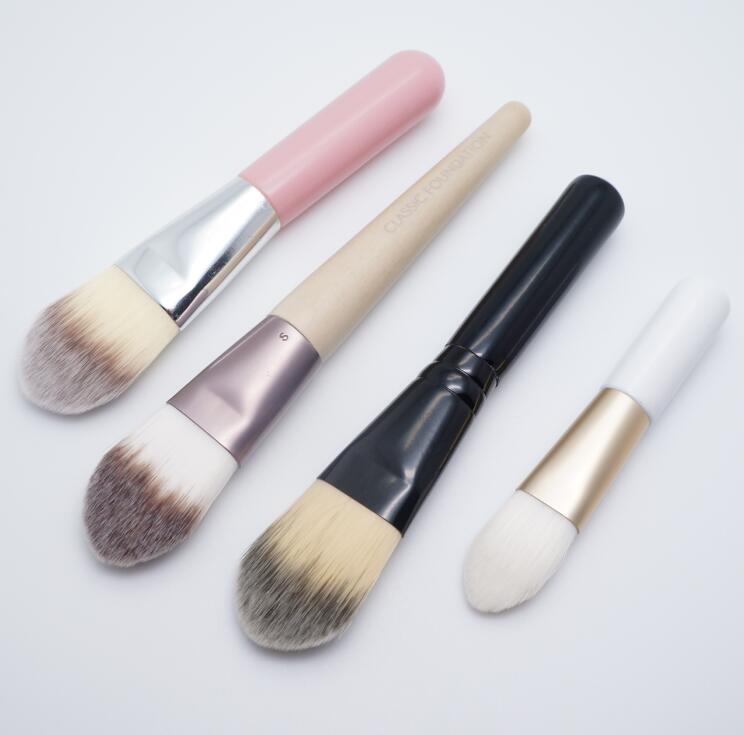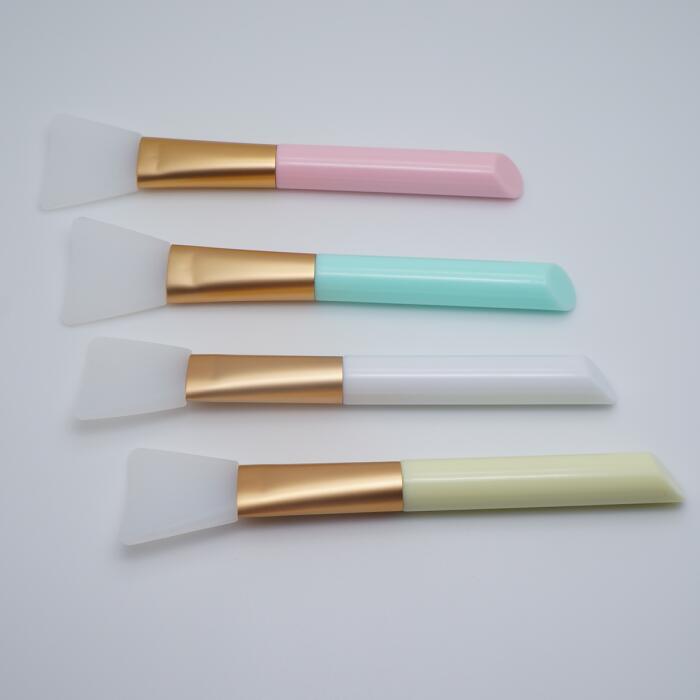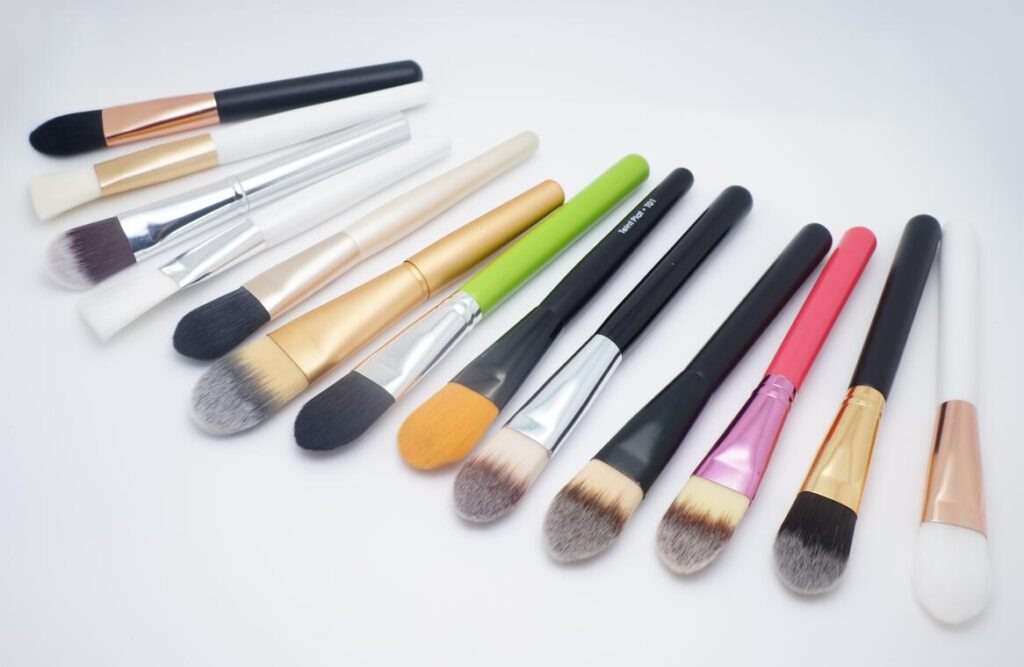Want to improve your face mask application but can’t decide between a silicone or a bristle brush? Let’s break down the pros and cons of each to help you make an informed choice.
Silicone facial mask brushes are hypoallergenic, easy to clean, and offer precise application, while bristle brushes can provide a more luxurious and spa-like experience. The choice between the two comes down to personal preference, skincare needs, and ease of maintenance.
Curious about the factors that might tip the scales in favor of one type over another? Stick around as we delve deeper into the advantages of each.
Understanding the Pros and Cons of Silicone and Bristle Brushes

Silicone brushes are perfect for those with sensitive skin due to their non-abrasive texture and hypoallergenic properties. Their solid structure, unlike porous bristle brushes, makes them resistant to bacteria build-up. Additionally, the absence of bristles means no product is wasted – a common issue with bristle brushes where the product often gets trapped among the bristles. Silicone brushes offer a precise and hygienic application each time. However, some users find that silicone brushes don’t spread product as evenly as their bristle counterparts.
Bristle brushes, on the other hand, are the traditional choice. They’re available in a variety of densities, with finer bristles providing a softer, more spa-like application. This feels much like a mini facial massage, helping to improve circulation in the skin. The texture of the bristles can also assist with gentle exfoliation, enhancing product absorption. However, bristle brushes can accumulate bacteria and product residue over time if not cleaned regularly and thoroughly, making silicone brushes a more hygienic choice overall. Bristle brushes can also be slightly more abrasive on sensitive skin, so they may not be the best fit for everyone.
Matching Brush Types with Skin Concerns

Understanding your skin type and concerns is essential in choosing the right facial mask brush.
For individuals with sensitive skin, silicone brushes might be more suitable. Their soft texture is less likely to cause irritation or disrupt the skin barrier. Additionally, these brushes are also perfect for acne-prone skin due to their non-porous structure, reducing the risk of spreading bacteria that could lead to breakouts.
For those with dry skin, a bristle brush might be a better fit. The texture of the bristles can offer mild exfoliation, helping to remove dead skin cells and enhancing the mask’s penetration and hydration capabilities.
If you’re dealing with dull skin, the additional circulation boost from the massaging effect of bristle brushes might help stimulate a healthy, radiant glow.
Brush Longevity, Maintenance, and Cost Considerations
When it comes to longevity, silicone brushes edge out their bristle counterparts. Due to their solid, non-porous structure, they’re more durable and less prone to damage. They’re also easier to clean, needing only a rinse with warm water and mild soap after use. This factor reduces maintenance time, making them more cost-effective and efficient in the long run.
On the other hand, bristle brushes demand more meticulous care. It’s not just about cleaning; drying these brushes is equally crucial to avoid any moisture-induced damage. In terms of cost, bristle brushes may require more frequent replacements due to normal wear and tear, which might affect your overall skincare budget.
However, for some, the luxurious feel and benefits of a bristle brush outweigh these considerations, deeming it a worthy investment in their skincare ritual.
Beyond Aesthetics – The Functional Analysis
When it comes to the final verdict, it’s important to weigh not just the aesthetics and feel of the brush, but also its functionality.

A silicone brush, for instance, allows a seamless and even spread of product on your skin. The rigidity of silicone also lets you target hard-to-reach areas with precision. As a bonus, the minimal absorption ensures you maximize your mask product with each use.
Meanwhile, bristle brushes have their own charm. They offer a more flexible application, adjusting to the contours of your face. Plus, the bristles can deliver a gentle massage effect, promoting better circulation and skin vitality.
Choosing between a silicone and a bristle brush ultimately depends on your personal needs, preferences, and lifestyle. One is not necessarily superior to the other; they each have their unique benefits and can be fantastic additions to your skincare routine when used correctly.
The Eco-friendly Perspective: Silicone or Bristle?
With rising environmental awareness, it’s essential to consider the ecological impact of our choices, even in beauty routines. Silicone brushes stand out due to their longevity, reducing frequent replacements and waste. They’re also made from durable synthetic materials that don’t utilize animal hair, making them a cruelty-free option. On the flip side, while silicone is recyclable, it’s not biodegradable.
Bristle brushes, specifically those made from natural fibers, can be a more sustainable option if sourced ethically. Unlike their synthetic counterparts, these are biodegradable. However, if you’re concerned about animal welfare, ensure that the bristles are obtained humanely, or opt for brushes using plant-based fibers like agave or sisal.
Brushing Techniques for Optimal Results
Regardless of brush type, the technique used during application can significantly affect the mask’s effectiveness. Starting from the center of your face and brushing outward in gentle strokes can promote lymphatic drainage, improving skin vitality. When applying near the eyes, be careful not to tug or pull the skin, as it’s more delicate in this area.
For silicone brushes, apply pressure evenly and glide the brush across your skin. With bristle brushes, a light feathering technique can be more comfortable and effective, preventing any potential skin irritation from overly vigorous application.
Misconceptions and Truths About Silicone and Bristle Brushes
Misinformation can influence your decision between silicone and bristle brushes. One common misconception is that silicone brushes are less effective in exfoliation. However, while they may not offer the same physical exfoliation as bristle brushes, they provide efficient application, spreading the mask evenly and allowing its active ingredients to work optimally on your skin.
Another myth is that bristle brushes are harder to clean, making them less hygienic. This isn’t necessarily true. While they require more careful maintenance, proper cleaning and drying can keep them in excellent, sanitary condition for an extended period.
Call to Action
As a leading makeup brush manufacturer, Queen Brush offers private label solutions that set your brand apart. Choose our high-quality silicone or bristle facial mask brushes, customizable to your specifications. Elevate your product line with our bulk production and wholesale capacity. Contact Queen Brush today – your partner for bespoke B2B solutions.

